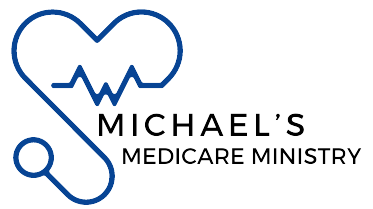Although navigating the world of Health insurance services may be challenging, it is crucial to understand what is available to safeguard your family’s financial stability and well-being. Health plans provide many advantages, such as financial stability and access to top-notch medical care. In this piece, we’ll discuss the key benefits of having a family health plan and why it’s an investment that you shouldn’t skip.

Protecting Your Money
Preventing Exorbitant Medical Expenses
The cost of medical care may be prohibitive, particularly for chronic illnesses or emergencies. By paying for a large percentage of these expenses, health plans provide as a safety net and lessen the financial strain on families. This includes regular check-ups, hospital stays, surgeries, and prescription drugs, all of which may rapidly mount up in the absence of coverage.
Avoiding Financial Difficulties
One of the main causes of financial stress and bankruptcy is unexpected medical expenditures. Families are better able to handle these costs without exhausting their resources or incurring debt when they have access to a comprehensive health plan. Families may concentrate on healing and well-being rather than stressing about expenses thanks to this financial stability.
Obtaining High-Quality Medical Care
Entire Coverage
A comprehensive variety of services, including as emergency treatment, specialized consultations, and preventative care, are usually provided by health insurance. This guarantees that families won’t have to pay a large amount of money out of pocket for essential medical care. Immunizations and screenings are examples of preventive interventions that can identify health problems early and improve results.
Association of Health Care Providers
A network of physicians, hospitals, and clinics is accessible via the majority of health insurance. Families are guaranteed high-quality treatment from reliable healthcare professionals because to this network. Families’ expenses are further decreased since these providers often have contracts with insurance companies that allow them to deliver services at discounted prices.
Tranquility of mind
Recognizing Your Coverage
It gives you comfort to know that your family is covered in the event of sickness or accident if you have a health plan. Families may now enjoy their lives to the fullest without having to worry about unanticipated medical costs. Whether it’s an unplanned accident or a child’s sudden fever, having coverage guarantees that medical needs are met appropriately and on time.
Assistance and Materials
Extra support services like customer service hotlines, resources for health education, and wellness initiatives are often included with health insurance. These tools assist families in navigating the sometimes complicated medical system and making educated choices about their healthcare. Finding the best medical professionals and managing chronic diseases are more tasks that support services may help with.
Encouraging the Use of Prevention
Promoting Frequent Exams
Health plans place a strong emphasis on preventative care by providing little or no cost for periodic checkups and screenings. Frequent visits to healthcare professionals aid in the early detection of possible health disorders, averting the development of more severe illnesses. For long-term health and wellbeing to be maintained, early identification and treatment are essential.
Screenings and Vaccinations
Having coverage for immunizations and screenings guarantees that every member of the family maintains current on vital preventive care. Immunizations guard against common illnesses, but screenings may spot disorders like diabetes, cancer, and heart disease early on. These preventative actions save long-term healthcare expenses while improving family health overall.
Improved Health Results
prompt medical attention
Families with health plans are more likely to seek medical attention when necessary, which improves health outcomes. Cost-related postponement or avoidance of medical treatment might lead to more serious health problems and consequences. Getting medical help as soon as possible guarantees that illnesses are addressed early, increasing the likelihood of a complete recovery.
Handling Long-Term Illnesses
Health insurance provide vital assistance in the management of long-term medical disorders including diabetes, asthma, and high blood pressure. Frequent therapy and monitoring aid in the management of various illnesses, reducing complications and enhancing quality of life. In order to effectively treat chronic diseases, insurance must pay for prescription drugs, doctor visits, and lifestyle control initiatives.
Encouraging Mental Wellness
Mental Health Services’ Accessibility
Since mental health is essential to overall wellbeing, mental health therapies are now often covered by health insurance. This covers mental health services including counseling and treatment. By providing people and families with access to these programs, the stigma around getting assistance is lessened when it comes to mental health difficulties.
Lowering Tension
Families might feel a lot less stressed knowing that mental health therapies are covered. Having access to expert assistance guarantees that people get the treatment they need, regardless of whether they are struggling with anxiety, depression, or other mental health concerns. Better mental health and a healthier home environment are fostered by this assistance for each family member.
Improving Family Welfare
Promoting Healthier Ways of Living
Wellness initiatives and rewards for healthy living are often included in health plans. These initiatives can include financial assistance for dietary advice, smoking cessation programs, and gym memberships. Fostering healthy behaviors improves the general well-being of families and aids in the prevention of chronic illnesses.
Teaching Materials
Numerous health plans provide training materials on a range of health-related subjects, including treating certain medical problems and improving diet and exercise. With the help of these materials, families may make better health choices and change their lives. Having access to trustworthy health information is essential for long-term health maintenance.
Extended-Duration Savings
Keeping Future Costs High
Long-term financial savings may be achieved by making an investment in a health plan. Families may save money on future medical expenses by providing preventative care and treating illnesses early. Regular screenings and immunizations are examples of preventive measures that help identify and treat health problems before they worsen and become more expensive.
Agreed Prices
Health insurance and healthcare providers often work out a reduced price for covered treatments. Families now spend less for medical treatment than they would have to if they didn’t have coverage. These agreed-upon prices cover a broad variety of procedures, including significant operations and regular check-ups.
Selecting the Appropriate Health Plan
Evaluate Your Family’s Requirements
It’s important to evaluate the individual requirements of your family when choosing a health plan. Take into account variables including age, current medical issues, and use of healthcare. Selecting a plan that offers sufficient coverage and perks will be made easier if you are aware of the particular needs of your family.
Comparing Schemes
Spend some time comparing various health plans, taking into consideration features like out-of-pocket expenses, deductibles, premiums, and coverage. Think about the network of medical professionals as well as the accessibility of extra services like wellness initiatives and coverage for mental health. You may choose the plan that best suits your family’s demands and budget by comparing them.
Getting Expert Guidance
Consult a healthcare insurance counselor or broker if you’re unclear which plan to choose. These experts can assist you in sorting through the available choices and locating a plan that provides the most value for your family. Their knowledge may be quite helpful in helping you make a wise choice.




